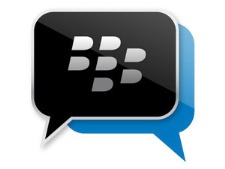John Chen, CEO of ailing mobility player BlackBerry, said the company’s BBM mobile messaging service will be available for Windows Phone in the next quarter of the year, as he outlined the key role the technology will play for BlackBerry in the near future.
“Joint development is on its way for the Windows Phone platform for global availability targeted for fiscal Q2,” Chen said during the company’s latest results announcement. The company is currently in its fiscal first quarter (March – May).
The addition of Windows Phone support will see BBM preloaded onto selected Nokia Lumia smartphones, as well as devices using the Android-based Nokia X platform, as announced at Mobile World Congress.
BBM was given a huge boost with the launch of the app for the iOS and Android platforms in October last year — it now has 85 million monthly active users and 113 million registrations — and BlackBerry clearly believes Windows Phone will drive this further.
“We’re seeing solid uptick in multi-platform users driving growth in total registrations,” Chen said, adding that growing the BBM user base is a top priority.
And BlackBerry clearly sees BBM as a way to generate revenue in the near future. “We have a very solid BBM monetisation plan,” the executive said.
There are now half a million BBM Channels — up from 200,000 four months ago — after the functionality was added to the iOS and Android versions of BBM in February.
With the likes of CNBC, Time, Rolling Stone and Virgin Atlantic having a presence, BBM Channels also appear to have a high level of engagement, with users reading an average of 11.5 posts per day.
“So a pay per user model with BBM Channels is a potential monetisation opportunity,” Chen said.
Other near-term approaches to monetise BBM include the introduction of stickers, which users can now buy from BBM Shop and add to messages.
Chen also touted the eBBM suite, which was announced at Mobile World Congress, and provides enterprise class mobile messaging to business customers, initially for BlackBerry smartphones and BlackBerry Enterprise Services.
The company is aiming to use a subscription model for these services, which include BBM Protect, which enables the use of a single app for both work and personal communications.
Chen also confirmed that BlackBerry is considering mobile payment functionality for the messaging app: “Our team is working on potential mobile payment for financial services and industry at large as a longer term monetisation play.”









Comments